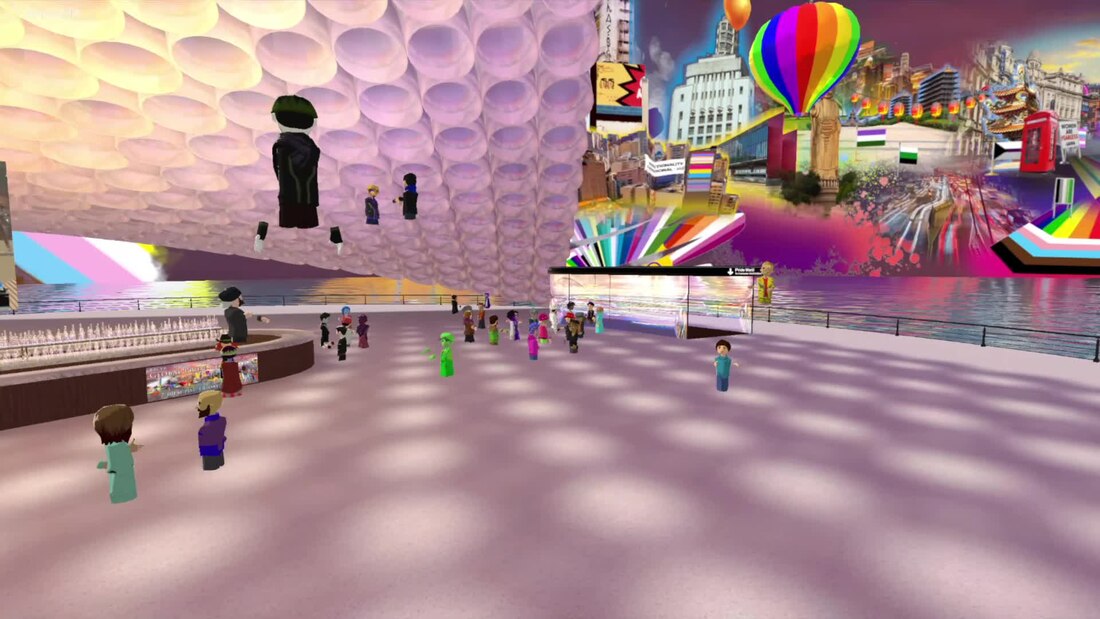Top Qs
Timeline
Chat
Perspective
AltspaceVR
Virtual reality social platform From Wikipedia, the free encyclopedia
Remove ads
AltspaceVR was a social Virtual reality (VR) platform that was founded in 2013 by Eric Romo[1] and launched its initial product in May 2015. In 2017 it was acquired by Microsoft[2] and became part of the Mixed Reality division (alongside notable products like HoloLens and HoloLens 2) within the Cloud and AI group. Some elements of the platform appear in Microsoft Mesh.[3]
The platform largely consisted of user-generated spaces called "worlds", which could be visited by other users. Individuals could gather, talk, collaborate, and be co-present in small to large groups.
The platform was regularly home to a wide variety of live virtual events from VR church[4] and LGBTQI+ meetups[5] to large business conferences and magic shows.[6]
In January 2023 Microsoft announced on the AltspaceVR Homepage that the service would be shutting down on March 10, 2023.[7][8]
Remove ads
Worlds
AltspaceVR was organised in spaces called "worlds", which could be found and accessed via a floating menu or via in-world "teleporters". Some large worlds, such as the "Campfire", were built and maintained by official developers as places for users to meet and interact. As of May 2022, AltVR removed all developer-maintained worlds.
Altspace's internal menus included a list of "featured" user-defined worlds and a real-time list of the most "popular" worlds, arranged by the number of users currently visiting each world. Other menus listed current and planned "events", which took place inside official or user-generated worlds.[citation needed]
In 2020 AltspaceVR hosted BRCvr, a Burning Man event.[9]
Remove ads
Supported hardware
AltspaceVR supported several VR headsets:
- SteamVR devices (HTC Vive, Valve Index...)
- Oculus Rift/Rift-S via Oculus Store
- Oculus Quest/Quest 2 (as a standalone app, or via Oculus Link)
- Windows Mixed Reality devices
- Samsung Gear VR (discontinued mid-2020[10])
- Oculus Go (discontinued 2020[11])
- Google Daydream (discontinued 2019[12])
The platform was available as a traditional desktop application for Mac and Windows, and had a non-VR Android app until 2019.[12]
Remove ads
See also
- Horizon Worlds
- Resonite - A social VR game with in-game building features.
References
External links
Wikiwand - on
Seamless Wikipedia browsing. On steroids.
Remove ads
